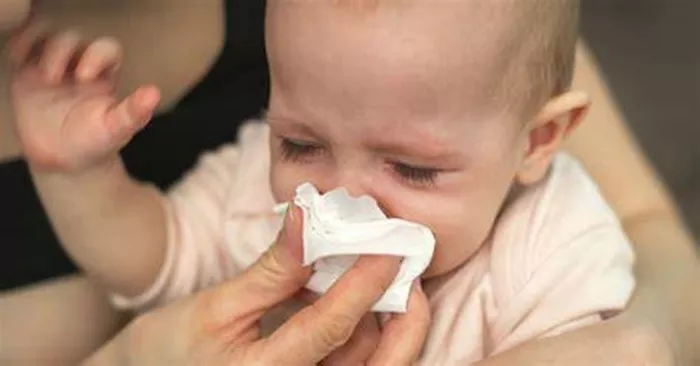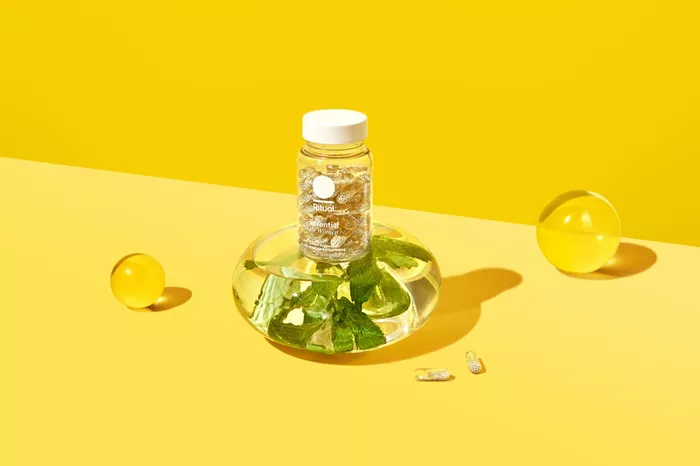Hay fever, or allergic rhinitis, is an allergic reaction to airborne substances like pollen, dust mites, or pet dander. While more common in older children and adults, even infants as young as nine months can experience symptoms of hay fever. Parents and caregivers often seek guidance on how to alleviate these symptoms safely. This comprehensive article explores what you can give a 9-month-old for hay fever, focusing on safe treatments, natural remedies, and preventive measures.
Understanding Hay Fever in Infants
What is Hay Fever?
Hay fever is an allergic reaction that primarily affects the nasal passages, causing symptoms such as sneezing, runny nose, itchy eyes, and congestion. In infants, symptoms can also include irritability, poor feeding, and disturbed sleep.
Causes of Hay Fever in Infants
Hay fever in infants is triggered by exposure to allergens such as:
Pollen: From trees, grasses, and weeds.
Dust Mites: Tiny insects that thrive in household dust.
Pet Dander: Skin flakes from cats, dogs, and other pets.
Mold Spores: Found in damp or humid environments.
Symptoms of Hay Fever in a 9-Month-Old
Recognizing hay fever in a 9-month-old can be challenging as symptoms often overlap with common colds or other respiratory conditions. Key symptoms include:
1. Persistent runny or stuffy nose
2. Sneezing and coughing
3. Red, watery, or itchy eyes
4. Irritability and fussiness
5. Poor feeding and disturbed sleep
6. Rubbing of the nose or eyes
Safe Treatments for Hay Fever in Infants
Treating hay fever in infants requires a careful approach to ensure safety and effectiveness. Below are several options:
1. Saline Nasal Drops
Usage and Benefits:
Saline nasal drops are a safe and effective way to relieve nasal congestion in infants. They help to thin mucus and clear nasal passages.
Application:
Lay your baby on their back with their head slightly tilted.
Administer a few drops of saline solution into each nostril.
Use a bulb syringe to gently suction out mucus if necessary.
Repeat as needed, especially before feedings and bedtime.
2. Humidifiers
Usage and Benefits:
Using a cool-mist humidifier in your baby’s room can add moisture to the air, which helps soothe irritated nasal passages and reduce congestion.
Application:
Place the humidifier in your baby’s room, ensuring it’s out of reach.
Clean the humidifier regularly to prevent mold and bacteria growth.
Use distilled or purified water to avoid mineral buildup.
3. Allergy-Proofing Your Home
Strategies:
Reducing your baby’s exposure to allergens is crucial in managing hay fever symptoms. Here are some practical steps:
Keep Windows Closed: Especially during high pollen seasons to prevent pollen from entering your home.
Clean Regularly: Vacuum and dust frequently to reduce dust mites and pet dander.
Wash Bedding: Use hot water to wash your baby’s bedding weekly to eliminate dust mites.
Use HEPA Filters: In air purifiers and vacuum cleaners to trap allergens.
Medications for Hay Fever in Infants
1. Antihistamines
While some antihistamines can be used for older children and adults, their use in infants is limited. Always consult your pediatrician before giving any medication to your baby.
Types and Recommendations:
Diphenhydramine (Benadryl): Not generally recommended for infants under one year without a doctor’s guidance due to potential side effects.
Cetirizine (Zyrtec) and Loratadine (Claritin): Non-sedating antihistamines that may be prescribed for older infants under medical supervision.
2. Decongestants
Safety and Usage:
Decongestants are not recommended for infants due to the risk of serious side effects, including increased heart rate and agitation. They should be avoided in children under two years of age.
Natural Remedies for Hay Fever in Infants
1. Breastfeeding
Benefits:
Breast milk contains antibodies that can help boost your baby’s immune system and may reduce the risk of developing allergies.
Application:
Continue breastfeeding if possible, as it provides essential nutrients and immune support.
For formula-fed babies, discuss with your pediatrician the best options to support your baby’s immune health.
2. Probiotics
Benefits:
Probiotics may help in supporting the immune system and reducing allergic reactions. Some studies suggest that probiotics can play a role in managing allergies.
Application:
Choose probiotics specifically formulated for infants.
Consult your pediatrician before introducing probiotics to ensure they are appropriate for your baby.
3. Herbal Remedies
Safety and Usage:
Herbal remedies should be used with caution in infants. Always consult with a healthcare provider before giving any herbal treatments.
Examples:
Chamomile: Known for its soothing properties, chamomile tea (cooled) can be used for steam inhalation.
Butterbur and Quercetin: Though effective for older children and adults, these should not be given to infants without medical advice.
Preventive Measures for Hay Fever in Infants
1. Monitor Pollen Counts
Strategies:
Stay informed about daily pollen counts, especially during peak seasons. Adjust outdoor activities accordingly to minimize your baby’s exposure to allergens.
2. Clean Clothing and Toys
Strategies:
Change your baby’s clothes after they’ve been outside to remove pollen.
Wash stuffed animals and soft toys regularly to reduce dust mites.
3. Bathing and Hygiene
Strategies:
Give your baby a bath before bedtime to remove allergens from their skin and hair.
Wash your baby’s face and hands frequently to reduce pollen exposure.
When to See a Doctor
Persistent Symptoms
If your baby’s symptoms persist despite home management, it’s important to seek medical advice. Chronic symptoms may require a more comprehensive treatment plan.
Severe Reactions
If your baby shows signs of a severe allergic reaction, such as difficulty breathing, swelling of the face or lips, or hives, seek emergency medical attention immediately.
Allergy Testing
In some cases, your pediatrician may recommend allergy testing to identify specific triggers and tailor a treatment plan for your baby.
Conclusion
Managing hay fever in a 9-month-old requires a careful, multi-faceted approach that prioritizes safety and efficacy. Saline nasal drops, humidifiers, and allergy-proofing your home are safe first steps to alleviate symptoms. Medications such as antihistamines should only be used under strict medical supervision. Natural remedies like breastfeeding and probiotics offer additional support, while preventive measures can help reduce allergen exposure. Always consult your pediatrician for personalized advice and treatment options, ensuring your baby’s health and comfort during hay fever season.
[inline_related_posts title=”You Might Be Interested In” title_align=”left” style=”list” number=”6″ align=”none” ids=”9579,9575,9572″ by=”categories” orderby=”rand” order=”DESC” hide_thumb=”no” thumb_right=”no” views=”no” date=”yes” grid_columns=”2″ post_type=”” tax=””]
































